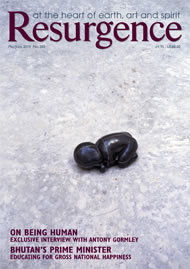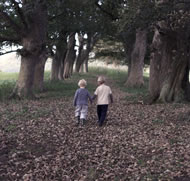At the end of last year, I had the privilege of participating in a workshop on education in Bhutan. At some point during our discussions, some university students asked me: “Our country is engaged in designing a system of education for happiness to complement our vision of Gross National Happiness. What advice can you give us?”
“When you leave university, do not seek jobs,” I said.
They were surprised by my answer. Some of them even looked stunned.
“What do you mean? How can we make a living without a job?” asked one.
“Rather than seeking a job, create a job. Even better, create a livelihood!” I said. “After all, Bhutan is a Buddhist country where you have a tradition of right livelihood.”
As you can imagine, a lively discussion followed.
When are we happy? We are happy when we are free and contented. When we want someone else to give us a job, we become an employee, and an employee has to obey the wishes of the employer. When you are employed, your freedom to think, to imagine and to be creative is curtailed. And for the employees of large companies, businesses and factories, this holds even more so. Working in big institutions leaves the individual only a limited amount of ‘space’ to freely innovate, to follow their intuition and to take initiative. The result is frustration, discontentment and unhappiness.
At this present time, educational systems all over the world serve the interest of those who value the Gross National Product above all else, which then means education must be largely oriented towards getting better-paid employment. Intellectual work attracts higher rewards than physical work, so educational institutions pay more attention to developing the intellect of their students.
The Bhutanese vision of Gross National Happiness requires education to be broader than that: it has to be holistic too, placing equal importance on head, heart, hands and home. Of course we need to learn to think and use our brains, but we also need to develop our intuition, our imagination and our heart qualities. Moreover, we need to learn handy skills and to be makers, builders and producers, rather than mere consumers of manufactured goods. We also need to learn to take care of our homes and our communities: not just our family home and human communities, but also our planetary home and the Earth community.
Education for economic growth emphasises the importance of the three Rs: Reading, Writing and Arithmetic (they are not even three Rs proper!). However, education for happiness needs to replace the three Rs with four Hs: Head, Heart, Hands and Home (E = H4). If we do this, then we will be better equipped and better prepared to follow our vocation and create livelihoods instead of seeking jobs or employment.
Bhutan is fortunate to have a wise prime minister, Jigmi Y. Thinley. He addressed our workshop (our Keynotes article in this issue is based on that presentation) and elaborated his vision for the future direction of Bhutanese education. He said that human wellbeing and planetary sustainability should be the paramount aim of Bhutanese education.
Mr Thinley’s thoughts resonate with the views of Richard Louv who, in an edited extract from his latest book, Last Child in the Woods, now published in paperback, warns us against a childhood condition he calls Nature-Deficit Disorder. When we learn from Nature and are in Nature we are at our happiest.
The vision of Prime Minister Thinley and Richard Louv can be realised by following the formula E = H4.
It is our absolute pleasure to publish these two thinkers in the pages of Resurgence.
Enjoy.








